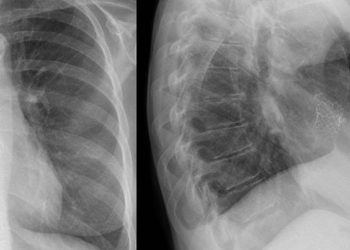Novel preemptive intervention effective in reducing autism spectrum disorder severity and rate of diagnosis
1. In a randomized-controlled trial amongst infants showing early signs of autism spectrum disorder a preemptive intervention, used when atypical development first emerges, reduced the severity of symptoms and rates of diagnosis.
Evidence Rating Level: 1 (Excellent)
Study Rundown: Although children with autism spectrum disorder (ASD) demonstrate symptoms in earlier development, therapeutic interventions are not begun till diagnosis. There have been recent advancements in developmental sciences that demonstrate the effect of caregiver interaction styles on infant development. Specifically, a newer intervention, the iBASIS-Video Interaction to Promote Positive Parenting (iBASIS-VIPP), is evaluating this concept. It utilized video feedback to increase caregiver awareness of their infant’s social communication skills and guide specific caregiver responses to build infant social engagement. According to emerging theories, such interventions beginning when the earliest signs of atypical development are observed and the brain is still developing, may result in a larger impact of outcomes in later childhood. However, there has been no research demonstrating effects of preemptive interventions on ASD symptom emergence.
This is a single-rater blinded randomized clinical trial conducted at 2 different research centers. 104 participants between 9 to 15 months were included. They all displayed at least 3 of 5 specified behaviours indicating high likelihood of ASD as per the Social Attention and Communication Surveillance-Revised (SACS-R) 12-month checklist. They were then divided in a 1:1 ratio to receive either the iBASIS-VIPP intervention plus usual community care or usual community care only. The intervention involved 10 sessions delivered to families by a therapist where the video-taped interaction between the caregiver and infant dyad would be reviewed and discussed. Based on this, caregivers were asked to complete daily home practice using targeted skills when interacting with the infant. The control group received usual care recommended by community practitioners. Infants were assessed at baseline, treatment end point, age 2 years, and age 3 years. The primary outcome measured by ASD severity over time, assessed by the Autism Observation Scale for Infants (AOSI). The study demonstrated that there is reduced ASD symptom severity in the intervention group from treatment endpoint to 12-month postbaseline assessment. The secondary outcomes measured were clinical ASD diagnosis at age 3 years and measures of child development. It was found that there were reduced odds of ASD diagnosis in the iBASIS-VIPP group compared to control.
This was one of the first randomized controlled trial to evaluate preemptive intervention for infants showing early signs of ASD. It did so to evaluate new developmental theories, thus filling a gap in the literature. Additionally, it was well designed to improve internal validity of the experiment. For instance, randomization of infants was performed after stratifying the infants by site, sex, numner of behaviours indicating a higher likelihood of ASD on the SACS-R (endorsement of 3, 4, or 5 behaviours) and age range at recruitment (9-11 months or 12-14 months). The research staff conducting assessments were independent of team administrating intervention and they were blinded of group allocation. There was also high participant retention across the 4 assessment points spanning 2 years. One of the limitations of this study is the smaller sample, especially since prior similar studies demonstrated mixed results. Additionally, infants were only followed till the 3-year point, and although rare, their diagnostic classification could change if reassessed at later times. Therefore, future larger-scale studies are required to confirm the results found in this study. Future studies can focus on evaluating other preemptive interventions and comparing their effects on ASD symptom severity and diagnosis.
Click to read the study in JAMA Pediatrics
Relevant Reading: Early detection for better outcomes: universal developmental surveillance for autism across health and early childhood education settings.
In-Depth [randomized controlled trial]: A total of 89 participants were assessed at the end of the study, 45 in the intervention group and 44 in the control group. Both groups had similar baseline characteristics (mean [SD] age, 12.40 [1.93] months vs 12.38 [2.02] months, respectively; 76.0% male vs 60.4% male). The study found that there was reduced ASD symptom severity in the intervention group from treatment end point to the 12-month postbaseline assessment which was maintained at the 24-month postbaseline assessment. The combined treatment effect was statistically significant with an area between curves of -5.53 (95% CI, −∞ to −0.28; P = 0.04). It also showed reduced odds of ASD diagnostic classification at age 3 in the intervention group compared to the control group (3 out of 45 participants [6.7%] versus 9 out of 44 participants [20.5%]; odds ratio, 0.18; 95% CI, 0-0.68; P = 0.02).
Image PD
©2021 2 Minute Medicine, Inc. All rights reserved. No works may be reproduced without expressed written consent from 2 Minute Medicine, Inc. Inquire about licensing here. No article should be construed as medical advice and is not intended as such by the authors or by 2 Minute Medicine, Inc.







